The Black Dragon Empire
An Asian nation in Lords of the Earth Campaign Twenty-Seven
Welcome to the home page of the Black Dragon Empire, a nation in the fictional world of Lords of the Earth.
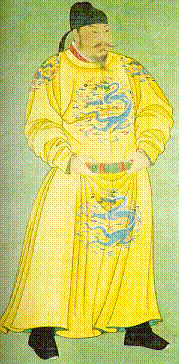 The
Black Dragon Empire is the second-largest of four states struggling to
survive in China. It lies in central China along the banks of the Huang Ho
river, though it's ancient capital is still at Zhu Zhou in Wu Hai.
The
Black Dragon Empire is the second-largest of four states struggling to
survive in China. It lies in central China along the banks of the Huang Ho
river, though it's ancient capital is still at Zhu Zhou in Wu Hai.Famous for its introduction of Buddhism into China, and its support of the arts and sciences, the Black Dragon Empire also has long historical links with both the Mahayana Buddhist sect and the Shaolin religious order. It has fought many wars in its history, and is one of the few Chinese nations to have survived the entirety of the last two centuries.
At the close of the seventh century, The Black Dragon Empire has a new leader, a new player and a new-found sense of purpose.
Black Dragon History
500-505 A.D. - The Empire is then named the Toba Wei and ruled by king Wei Han. Wei Han's son, Wei Sin, leads his troops on a series of raids against the steppe nomads.
506-510 A.D. - Capital city of Zhu Zhou is built in Wu Hai. Wei Sin leads more raids into Lang Shan, Gaxun-Nur, Suzhou, Kin, and Turnet.
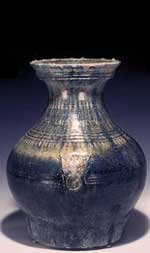 511-515
A.D. - Buddhist fundamentalism sweeps through Toba Wei, and the king's
brother, Wei Chu, brings fire and sword to the pagan nomads of Langshan, Gaxun-Nur, Suzhou,
Turnet and Kin. In the south, the Hu defeat the Hopei.
511-515
A.D. - Buddhist fundamentalism sweeps through Toba Wei, and the king's
brother, Wei Chu, brings fire and sword to the pagan nomads of Langshan, Gaxun-Nur, Suzhou,
Turnet and Kin. In the south, the Hu defeat the Hopei.
516-520 A.D. - A grand census of the Empire is taken.
521-525 A.D. - The kingdom of Shensi and the kingdom of Hunan declare themselves to be the northern and southern halves of The Empire of the Golden Dragon, creating a large state to the south and east of Toba Wei.
526-530 A.D. - The city of Bao Ling is built in Yanzhi. Buddhist missionaries begin to convert Lob Nor. In the north, the Khanate of Hsuing'nu begins to consolidate power.
531-540 A.D. - The Toba Wei enjoyed their prosperity.
541-545 A.D. - As the kingdom continued to drift, assassins sent by the Northern Empire of the Golden Dragon attacked the king, Wei Han. They failed to kill the king, but a few months later, the province of Kansu was seized by the Northern Empire of the Golden Dragon. Wei Han passed away naturally a few months later.
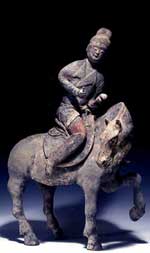 546-550
A.D. - Now nominally ruled by Wei Sin, the empire continues to drift (no
player). The Northern Empire of the Golden Dragon invades again, but is
driven back from Yanzhi into Kansu.
546-550
A.D. - Now nominally ruled by Wei Sin, the empire continues to drift (no
player). The Northern Empire of the Golden Dragon invades again, but is
driven back from Yanzhi into Kansu.
551-570 A.D. - Toba Wei invested in roads and missionaries. To the north, the Hsuing'nu were expanding their power. [The Empire is 20th in Military Strength, 21st in Economic Strength]
571-575 A.D. - Toba Wei continued to invest in roads, cities and missionaries. The Northern Empire of the Golden Dragon allies with the Hsuing'nu to conquer Korea.
576-585 A.D. - Years of peaceful and uneventful building continue. In the south, the Southern Kingdom of the Golden Dragon is wracked by religious wars which culminate in the Buddhist schism.
586-590 A.D. - Toba Wei builds the cities of Baotou (in Bao'ding) and Lu'xia (in Ningsia). Civil war wracks the mighty Northern Empire of the Golden Dragon, and it splits into The Northern Empire of the Golden Dragon, the Imperial Realm of Honan, The Divine Kingdom of Houma and The Lu Kingdom of Korea.
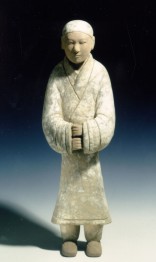 591-595
A.D. - The Great Northern War - Toba Wei, Honan (still calling
itself The Dragon) and Hsuing'nu invaded Houma simultaneously in a
coordinated attack designed to reinstall King Han Gwan-Ho as the Northern
Emperor. However, the Toba Wei and Hsuing'nu had fooled the Dragon, and
led his armies into a trap. With both Houman and Dragon armies shattered,
the Toba Wei took possession of Houma. Simultaneously, the Toba Wei seized
Kansu and Shensi, stopping at the Dragon's capital of Cheng'an. The
Southern Empire of the Golden Dragon invaded Honan (a former region of the
Northern Dragon) and changed its name to simply The Empire of the Golden
Dragon.
591-595
A.D. - The Great Northern War - Toba Wei, Honan (still calling
itself The Dragon) and Hsuing'nu invaded Houma simultaneously in a
coordinated attack designed to reinstall King Han Gwan-Ho as the Northern
Emperor. However, the Toba Wei and Hsuing'nu had fooled the Dragon, and
led his armies into a trap. With both Houman and Dragon armies shattered,
the Toba Wei took possession of Houma. Simultaneously, the Toba Wei seized
Kansu and Shensi, stopping at the Dragon's capital of Cheng'an. The
Southern Empire of the Golden Dragon invaded Honan (a former region of the
Northern Dragon) and changed its name to simply The Empire of the Golden
Dragon.
596-600 A.D. - The Toba Wei blockaded the city of Chang'an, causing the collapse of the Northern Dragon. Wei Sin died, leaving Wei Tian as king. In the south, the Empire of the Golden Dragon unwisely attacked the holy sites of the Therevada Buddhists. This caused the schism to widen and the Empire to split in yet another bloody civil war. Most of the Empire was Therevadan, and became the Hu Empire. The Mahayana-leaning northerners remained loyal to the Golden Dragon. The Mahayana Buddhists and the Shaolin, meanwhile, scolded Toba Wei, the Golden Dragon and Hsuing'nu for their betrayal of the Northern Dragon.
601-605 A.D. - The Great Southern War - Now the ruler of an empire, Wei Tian changed his nation's name to The Black Dragon Empire. At the urging of the Mahayana Primate, he provided troops to defend the Holy City of Pienching. With the aid of the Mahayana, he attempted to convince the Honan into joining the Empire, but the Honan were defiant. The Black Dragon Empire transferred the province of Bao Ding to the Hsuing'nu, who allowed it to become independent.
In the south, Hu and the Golden Dragon fought a bloody war, along with the Mahayana and Therevadan Buddhists. In June of 602, an enormous Mongol army, allowed through by the Hsuing'nu, invaded the area, passing through much of southern China.
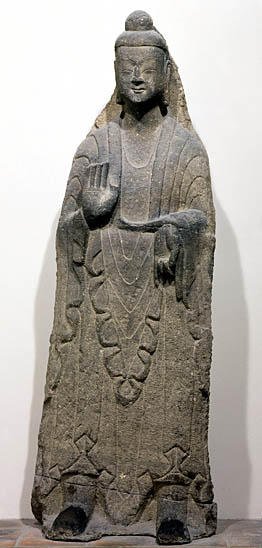 606-610
A.D. - The Empire of the Black Dragons took possession of the province of
Hopei from the Khanate of the Hsuing'nu. In the south, the Golden Dragon
Emperor was slain by assassins from the Hu Empire. The Great Southern War
still raged.
606-610
A.D. - The Empire of the Black Dragons took possession of the province of
Hopei from the Khanate of the Hsuing'nu. In the south, the Golden Dragon
Emperor was slain by assassins from the Hu Empire. The Great Southern War
still raged.
611-615 A.D. - The Honan War - Again employing the strategy of misdirection, the Black Dragon encouraged peace and trade with Honan while secretly preparing for war. The Black Dragon armies poured into Honan, but met with great difficulties, largely because of the unexpected death of the allied Khan of Lob Nor, who was leading much of the Black Dragon army. The Emperor was wounded and the heir captured during a Honanese counterattack. Meanwhile, the Shaolin had secretly allied with the Black Dragon and successfully seized the Honan capital of Pienching from within.
In the south, Hu at last conquered the Golden Dragon.
616-620 A.D. The War of Dragons - Hell came to China in 616. The Emperors of the Hu and the Black Dragon, as well as the leaders of the Shaolin and Mahayana Buddhists were all assassinated. Barbarian Hsuing'nu armies invaded the Honan peninsula while the Black Dragon Empire, on its way to invade Honan, ran afoul of an enormous Hu army bent on destroying its northern neighbor. A titanic battle raged in Shansi, where the Black Dragons killed eight Hu for every one of their own warriors lost, but the Hu still held the field when the fight was over. The army of the Black Dragon Empire retired into Kansu, and the battered Hu did not follow. A second Hu army ravaged the west. Wei Ki was appointed regent, while the Honan still held the heir prisoner. [The Empire is 25th in Military Strength, 15th in economic strength]
621-625 A.D. The War of Dragons (Continued) - The Hu retreated from Shansi, and attacked a Hsuing'nu army raiding Kiangsu. The Black Dragons and Shaolin quickly retook lands evacuated by the Hu, and waited for a counterstroke. When none came, they invaded Honan again, where the Hu and Honan armies awaited them. Several bloody but inconclusive battles later, the Black Dragons and Shaolin had inflicted far greater losses than they took, but were still forced to retreat. Both of the Shaolin generals were captured. Pienching, now under Black Dragon control, experienced a small rebellion, quickly put down. [The Empire is 16th in Military Strength, 13th in Economic strength]
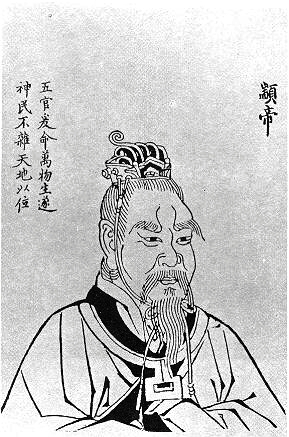 626-630
A.D. The War of Dragons (Continued) - Wei Lu was now the
Emperor of the Black Dragons, and he led his armies against the Hu in Chinling.
There, he met the army commanded by the Hu Emperor, Hu Gwei. Hu was the
superior general and destroyed Wei Lu's army and nearly killed the Black Dragon
Emperor. However, a second army under the great Black Dragon general Liu
and the Shaolin monk Sun caught up with Hu Gwei at Funui and smashed the Hu
army, sending it reeling back into Hupei. Further hostilities were put on
hold as the Hu rushed southwest to deal with an invading army from India and the
Black Dragons dealt with treachery and invasion.
626-630
A.D. The War of Dragons (Continued) - Wei Lu was now the
Emperor of the Black Dragons, and he led his armies against the Hu in Chinling.
There, he met the army commanded by the Hu Emperor, Hu Gwei. Hu was the
superior general and destroyed Wei Lu's army and nearly killed the Black Dragon
Emperor. However, a second army under the great Black Dragon general Liu
and the Shaolin monk Sun caught up with Hu Gwei at Funui and smashed the Hu
army, sending it reeling back into Hupei. Further hostilities were put on
hold as the Hu rushed southwest to deal with an invading army from India and the
Black Dragons dealt with treachery and invasion.
Flush with victory, Liu murdered the monk Sun and revolted against the Black
Dragon Emperor, quickly taking control. In the west, the Dar el 'Harb
horde raided the Empire. [The Empire is 20th in Military Strength, 9th in
Economic strength] [Chronicler's Note: A little revisionist history
seems to have occurred between turns 26 and 27, in which "Liu" became
"Lui" and in which he became the Emperor of the Black Dragons...]
631-635 A.D. - Emperor Lui was on the defensive. After the long war with the Hu and the new raids from an Islamic horde, it was time to re-evalute the empire’s situation. Fortunately, the horde ignored the Black Dragon Empire, and a temporary peace was reached with the Hu. Many cavalry were conscripted, and walls were put up around Zhu Zhou, while Emperor Lui found himself a beautiful bride in Shensi, with whom he had a son and a daughter. In the South, the Mongols raged through Hu territories. [The Empire is 19th in Military Strength, 12th in Economic strength]
636-640 A.D. - The Empire was peaceful. In the south, the war between the Hu and the Mongols continued to rage. [The Empire is 22nd in Military Strength, 13th in Economic strength]
641-645 A.D. - Emperor Lui died peacefully, to be replaced by his son, Lui II. The city of Si-Lei fell to a Black Dragon siege. Black Dragon assassins bungled an attempt to murder the Honan emperor Chu Xi. In the east, the Honan built up a huge military. In the south, the Mongols departed Hu lands for the steppes. [The Empire is 20th in Military Strength, 15th in Economic strength]
646-650 A.D. - The Honan invaded, defeating the Black Dragon army under the young emperor Lui II. Shentung and the city of Si-Lei fell to the Honan. [The Empire is 20th in Military Strength, 17th in Economic strength]
651-655 A.D. - China, and the Black Dragon Empire with it, was peaceful. [The Empire is 20th in Military Strength, 18th in Economic strength]
656-660 A.D. - Hupei was colonized and Chinling became tributary to the Empire. An expected Honan attack never arrived. [The Empire is 13th in Military Strength, 19th in Economic strength]
661-665 A.D. - The Black Dragon Empire sent two armies into Honan. The emperor seized Shentung and the city of Si-Lei, but the Honan emperor Chu Xi, escaping another attempt on his life), defeated the second Black Dragon army under Tran Cao and killed the general. [The Empire is 15th in Military Strength, 19th in Economic strength]
666-670 A.D. - Stymied by the many forts and castles in Honan, The Black Dragon army remained in Shengtung. [The Empire is 11th in Military Strength, 15th in Economic strength]
671-675 A.D. - The Empire enjoyed peace. In the north, the Hsuing'nu were invaded by the Mongols, but forced them to retreat north. [The Empire is 11th in Military Strength, 17th in Economic strength]
676-680 A.D. - The Empire enjoyed peace. In the east, the Hsuing'nu invaded the Honan province of Shangtung and soundly defeated the Honan army. [The Empire is 14th in Military Strength, 17th in Economic strength]
681-685 A.D. - The Empire stood poised on the brink of war, watching the Honan border from Shangtung. But cooler heads prevailed. There was no war. The Emperor's heir and only living relative died in a horse-riding accident. In the east, the Japanese military order known as Kannagara no Michi seized the Tsainan and Kiangsu regions from Honan. [The Empire is 20th in Military Strength, 20th in Economic strength]
686-690 A.D. - The Samurai War and the Hsuing'nu Campaign. The threat to China brought together the Empire, Honan, the Shaolin Brotherhood and the Mahayana Buddhists in the closely-cooperative Grand Alliance. Together the four nations evicted the Kannagara no Michi from China in a series of attacks. The Buddhists and the Empire then turned north to drive the Hsuing'nu back beyond the Great Wall. The wife of the newly-remarried Emperor gave birth to three children, ensuring the Imperial succession. The future capital was founded in Huang. [The Empire is 16th in Military Strength, 15th in Economic strength]
691-695 A.D. - The Hsuing'nu Campaign ends when Black Dragon general Li Dao storms the Hsuing'nu homeland and kills both the Hsuing'nu king and heir in combat. [The Empire is 17th in Military Strength, 17th in Economic strength]
696-700 A.D - Peace reigned in China for the first time in decades. The Empire let the region of Lob Nor go its own way, but improved relations with the northern cities acquired from the Hsuing'nu. [The Empire is 15th in Military Strength, 17th in Economic strength]
The Grand Magistrate's Office
The Empire has had several players and GMs:
An unknown player was in control from Turn 1 to Turn 6.
No player was in control from Turn 7 to Turn 12.
Paul Flinton was in control from Turn 13 to Turn ?
Dean Patterson was in control from Turn ? to Turn 35
Jeff Herndon was in control on Turn 36
Jeff Morrison was the GM from Turn 1 to Turn 23
Chris Ozdoba was the GM from Turn 24 to Turn 36
I'm Scott Nolan and I took over on turn 37 (681-685 A.D.). Chet S. is the GM.
